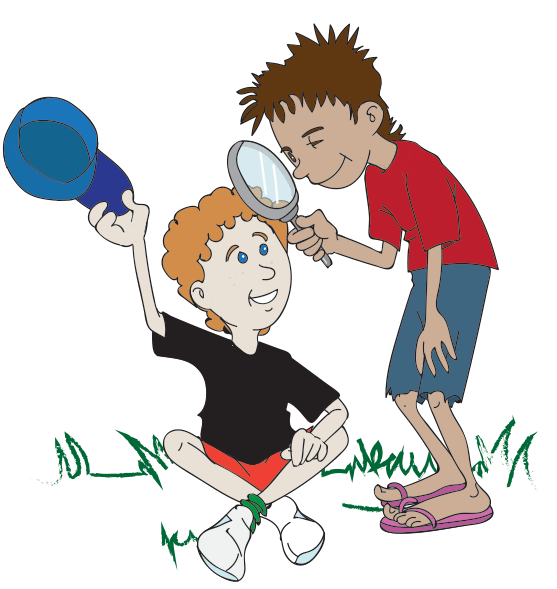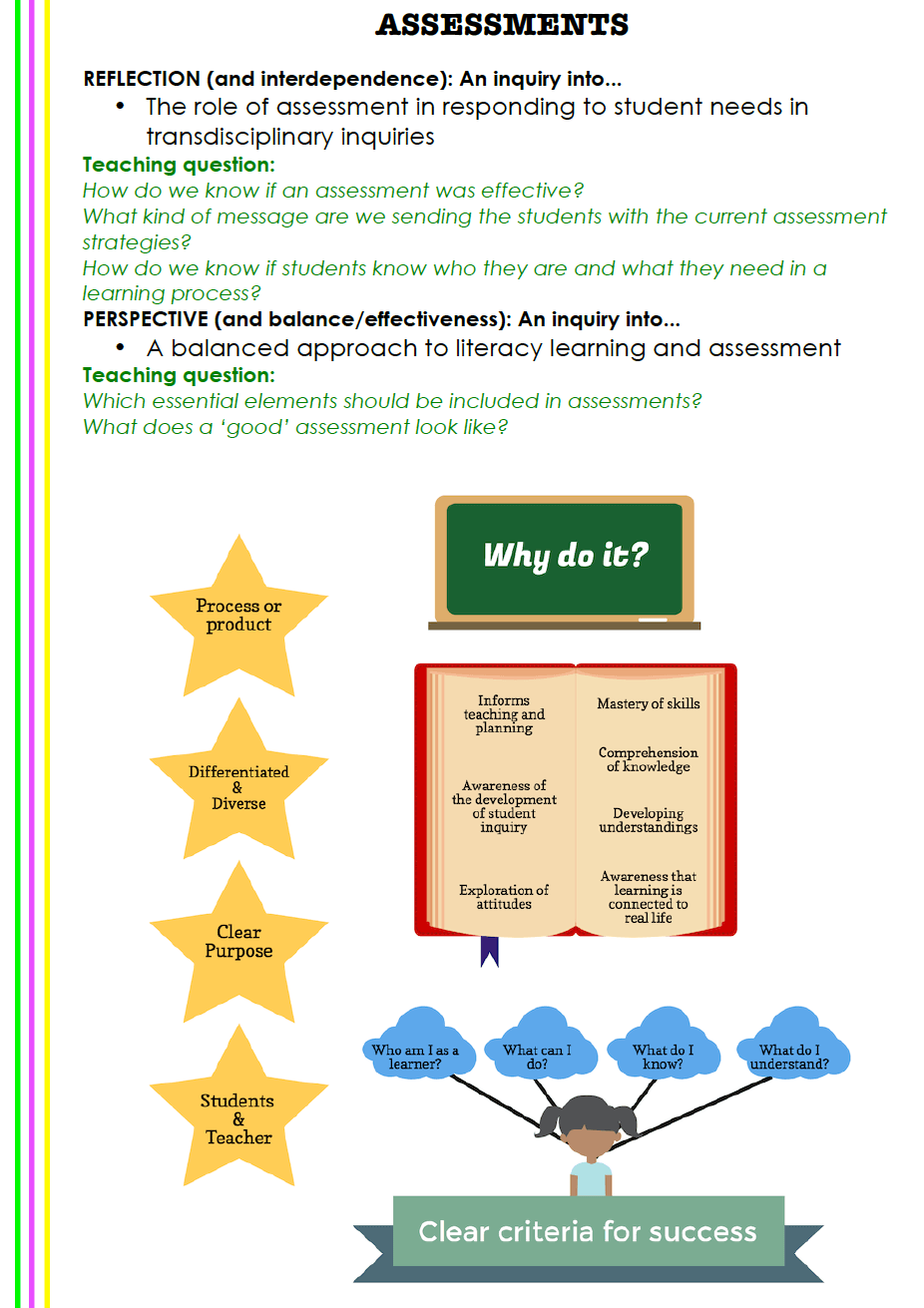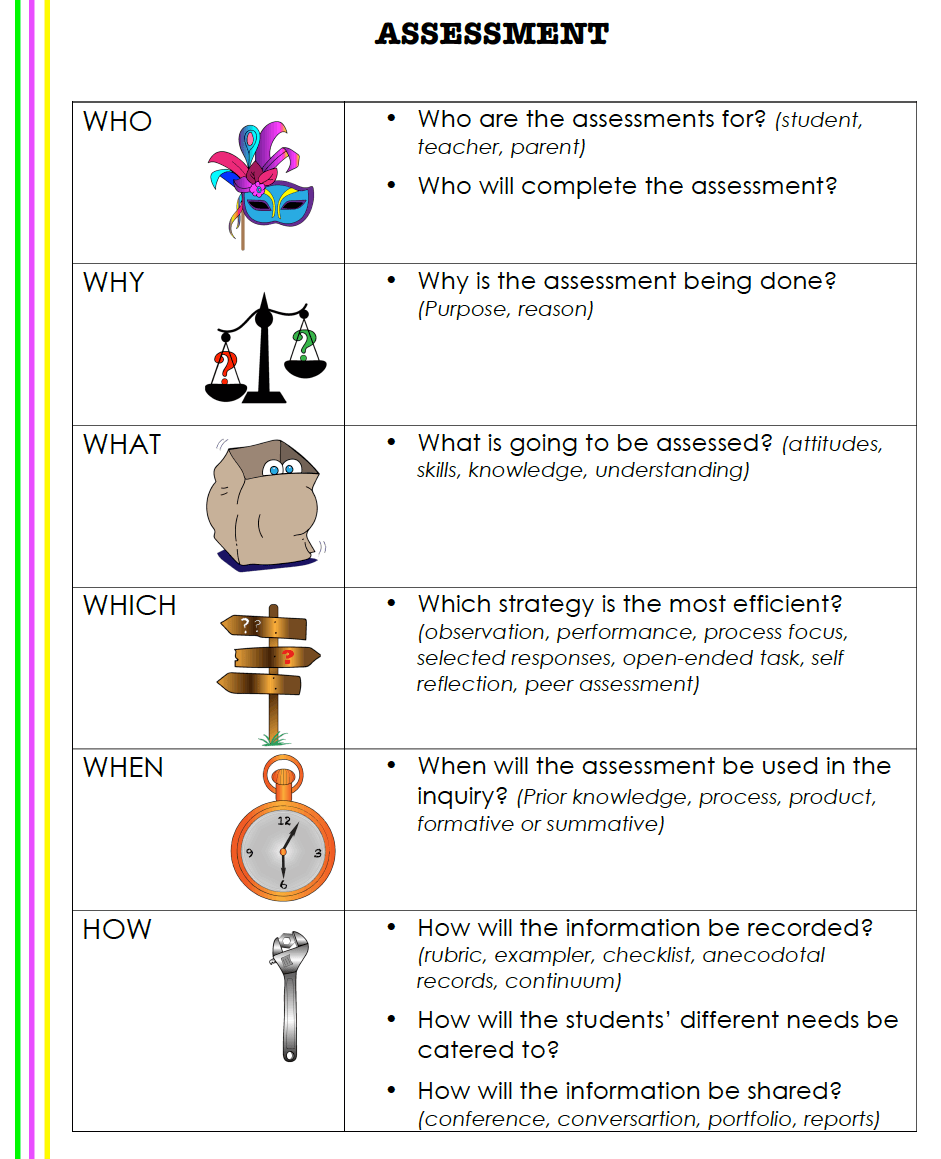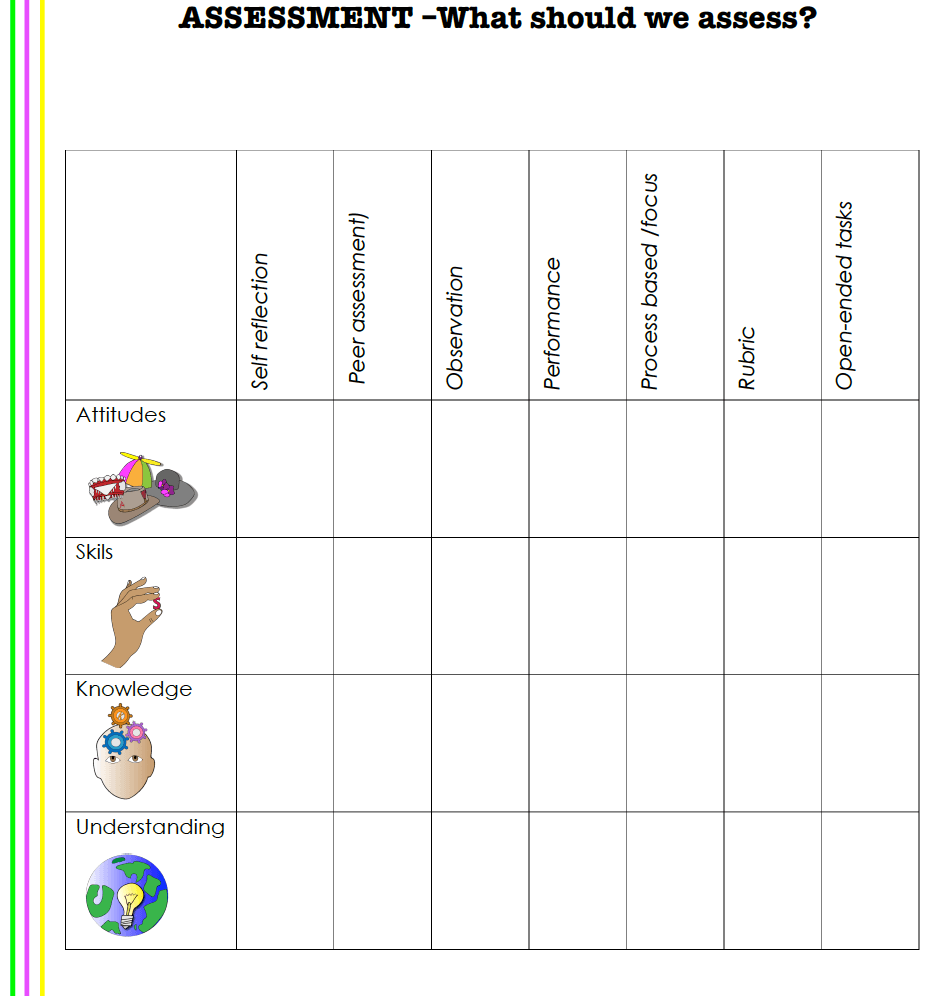ASSESSMENT

There are several forms that assessments can take:
ROLES DURING ASSESSMENTS
- Teacher led: The teacher uses syllabus or curriculum criteria /outcomes and and determines the level of achievement or success against these criteria. Teacher-led assessments can be either formal or informal.
- Student led: Students can help establish or use previously established outcomes to reflect on their own or peer’s work, this can be in the form of a reflection, review and assessment of task or process, or a student led interview with at rents and teachers at a reporting conference. Student-led assessments can be either formal or informal.
STYLES OF ASSESSMENTS
- Formal assessments: Formal assessments are tasks, reviews, reflections, etc that have a set criteria that determines the level of success. They are often planned for and can be held at any stage before, during or after a unit of inquiry.
- Informal assessments: Informal assessments are opportunities that arise without planning, where evidence of actions, understandings, skills, knowledge etc. become present and are recorded. The recording formats can include work samples, anecdotal notes, photographs, videos, etc. that provides evidence of a given outcome, understanding, skill or attitude.
ASSESSMENTS AT DIFFERENT STAGES OF THE INQUIRY
- Pre-assessments: These are tasks, reflections, observations or provocations that provide information or evidence about the students prior knowledge, understanding, skill level, etc. connected to a topic of inquiry that is about to commence. These can be both formal and informal, teacher or student led. Pre-assessments can be the beginning of a portfolio or process journal that will document the learning process. Pre-assessments are a critical tool for getting to know students and the prior knowledge they bring to the learning arena. They are the key to identifying gaps, misconceptions and ideas that need extending. Pre-assessments are one the foundations of differentiation that is based on learning content and needs.
- Formative assessments: Formative assessments help both the learner and the teacher form an ever developing picture of what is happening or not happening during the learning process. Formative assessments can be both formal and informal, teacher or student led. they are on-going during an inquiry and feedback from the assessment must be timely and relevant for it to be useful for the learner’s own use and for teachers to use in the planning process. Formative data is critical for ongoing choices and modifications to learning engagements that support differentiated learning needs.
- Summative Assessments: Summative assessments are pieces of assessment that give the summing up information of a unit of inquiry. Summative assesments are usually planned and have curriculum based criteria that determines the evidence required. Summative assessments are usually planned at the beginning of an inquiry as part of the backwards by design process. Summative assessment data is useful as a reflective tool for teachers to guide planning decisions when an inquiry is re–taught the following year. Summative assessment data can be used to share how successful outcomes were achieved or what on-going support may be needed in conferences or reporting.
PURPOSES FOR ASSESSMENTS
There can be
- Assessment FOR learning: Pre-assessments and formative assessment are short term data collection tools, they are engagements that are diagnostic and used as part of a data gathering process. The ‘Who’, ‘What’, ‘How’ and ‘Why’ of an inquiry topic is open to assessment for learning. Teachers can use the data to make decisions about ‘what next’ in the learning or inquiry process. Students can use self and peer assessments to help them understand who they are as learners, and where they are up to in the learning process. Assessment for learning, involves tasks where the data gathered is specifically used to help plan and adapt the next stages in the learning process. Provocations can be both an assessment for learning and assessment as learning.
- Assessment AS learning: Formative assessments can also be learning engagements, and informal assessments can fall into this category. Assessments that fit into this category are learning engagements that help develop and extend understandings, skills, etc., while providing evidence of more established understandings, skills, etc. or gaps in these same areas. Assessment as learning usually addresses the ‘What’ and ‘How’ of a learning process. It involves both a mix of formal and informal assessments processes, it can take the form of a process journal or portfolio.
- Assessment OF learning: These assessment tasks are usually formal, preplanned and summative in nature. They are deliberate learning engagements designed to have the learner perform or make visible set learning criteria. They can be used as a diagnostic tool for individual students to identify gaps and areas needing support, they can be used as grading tools or as analytical data to provide big picture information across a select group of learners.


